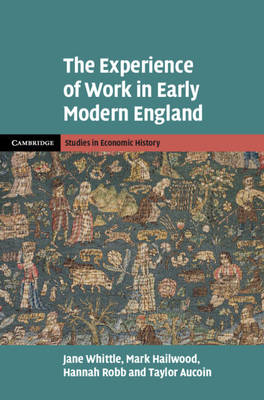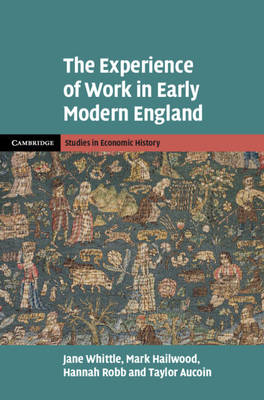
- Afhalen na 1 uur in een winkel met voorraad
- Gratis thuislevering in België vanaf € 30
- Ruim aanbod met 7 miljoen producten
- Afhalen na 1 uur in een winkel met voorraad
- Gratis thuislevering in België vanaf € 30
- Ruim aanbod met 7 miljoen producten
Zoeken
€ 194,95
+ 389 punten
Omschrijving
This book applies the innovative work-task approach to the history of work, which captures the contribution of all workers and types of work to the early modern economy. Drawing on tens of thousands of court depositions, the authors analyse the individual tasks that made up everyday work for women and men, shedding new light on the gender division of labour, and the ways in which time, space, age and marital status shaped sixteenth and seventeenth-century working life. Combining qualitative and quantitative analysis, the book deepens our understanding of the preindustrial economy, and calls for us to rethink not only who did what, but also the implications of these findings for major debates about structural change, the nature and extent of paid work, and what has been lost as well as gained over the past three centuries of economic development. This title is also available as open access on Cambridge Core.
Specificaties
Betrokkenen
- Auteur(s):
- Uitgeverij:
Inhoud
- Aantal bladzijden:
- 345
- Taal:
- Engels
- Reeks:
Eigenschappen
- Productcode (EAN):
- 9781316519943
- Verschijningsdatum:
- 9/10/2025
- Uitvoering:
- Hardcover
- Formaat:
- Genaaid
- Afmetingen:
- 152 mm x 229 mm
- Gewicht:
- 671 g

Alleen bij Standaard Boekhandel
+ 389 punten op je klantenkaart van Standaard Boekhandel
Beoordelingen
We publiceren alleen reviews die voldoen aan de voorwaarden voor reviews. Bekijk onze voorwaarden voor reviews.








